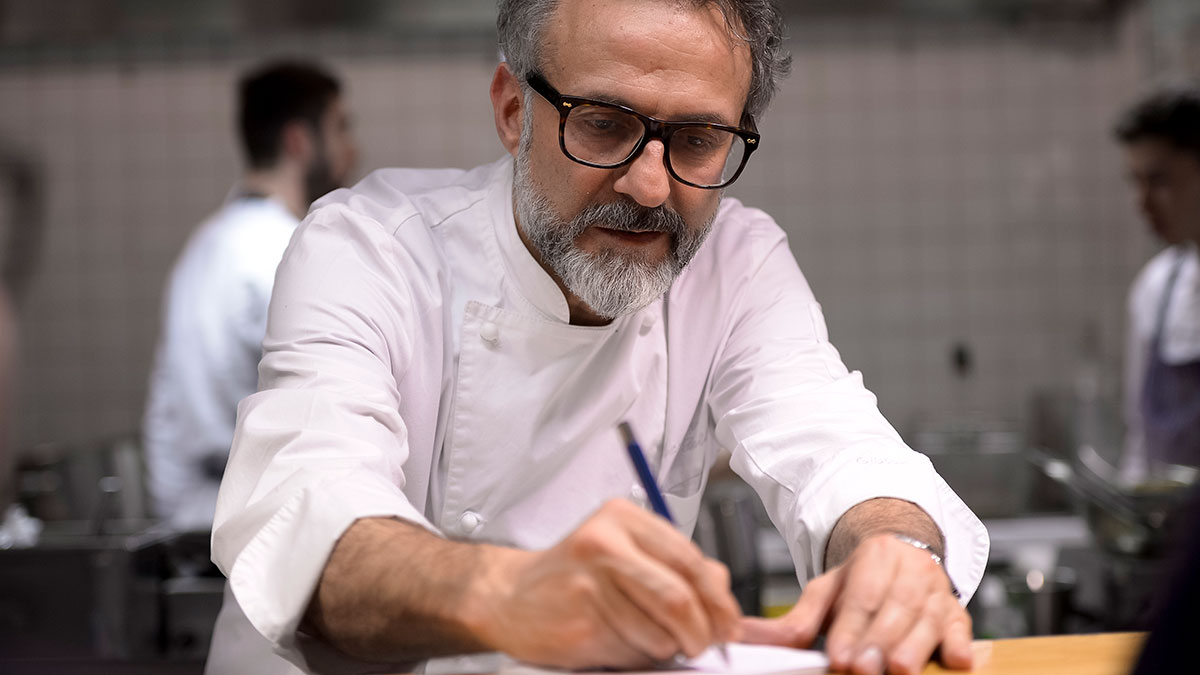
Speaking at the World Economic Forum's Bold Actions for Food as a Force for Good virtual event, the three-Michelin-star-awarded chef stressed the importance of creating sustainable, ethical food systems that distribute food to those who need it most.
“Not wasting is a demonstration of climate responsibility," he said. "Changing behaviour is one step to finding solutions to how we grow our food, how we shop for our food, how we use ingredients in our kitchen. People make change happen. Revolution starts in the field and out in the street.”
Currently, 1.3 billion tonnes of food are thrown away each year, while 690 million people go hungry. The Forum's Global Risks Report 2020 lists food crises as one of its top risks.
Part of the problem is misaligned incentives, Bottura explained. He described one example in Rio de Janeiro, where unused fruit and vegetables were sent off to be burned because it was more expensive to distribute them to those in need than to burn the waste.
“Food is not just economy," he said. "Food is culture, food is health - and most important, food is community. It plays a huge role in all of our lives, not just chefs, farmers, and movers and shakers in the food industry, but everyone.”
Bottura, who has spent 35 years in the food industry, said he doesn't waste anything at his restaurant Osteria Francescana in Modena, Italy, and that his goal is to provoke his guests to see and taste things from another point of view.
“If you can see the invisible potential behind stale bread, bruised fruit, vegetable peels and crust of parmigiana-Reggiano cheese then you’ll be able to expand your creativity and use these ingredients instead of throwing them away,” he said.
Bottura also founded Food for Soul, a nonprofit that aims to build healthier and more equitable food systems.
“There needs to be synergy between the many voices in the food community,“ he said. "It’s not just about how to grow our food better but also how to waste less, how to get the best and the most out of the investment in the food system.”
Bottura said that his grandmother used to tell him that he couldn't leave the table until he finished his plate, a lesson that stuck with him. He stressed the importance of reframing our approach to food by being inquisitive and resourceful.
"Changing behaviour begins with education," he said. "Better food education for a better food future. It begins with our children, teaching them to know food, to value it."
The United Nation’s Food and Agriculture Organization (FAO) suggests seven steps individuals can take to reduce food waste, including buying ‘ugly’ or irregularly shaped fruit and vegetables, keeping leftovers and donating surplus food.
“Let’s start asking where our food comes from and how we can secure its future," Bottura said. "If every step of the chain has been carried out in an ethical structure, the final result will be better and more delicious.”


